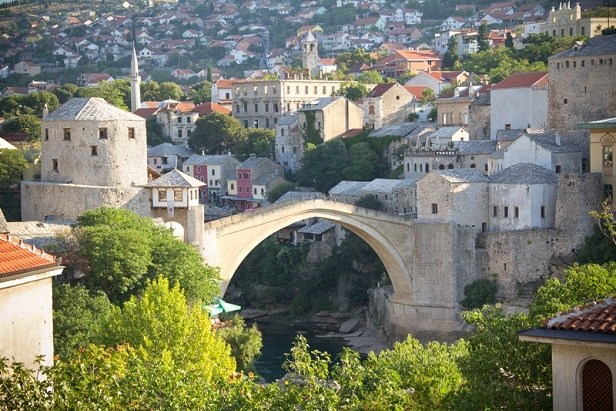The separatist stance of the Republika Srpska leader is only the tip of the iceberg of the crisis in Bosnia and Herzegovina (BiH).
The Bosnian Serb political leader Milorad Dodik can only seriously threaten to call the shots for independence and an own army because he has the full support of Russia and both can exploit a divided and weak Europe on many issues in the Western Balkans for the time being.
For the moment, Russia is recklessly pulling its maximum weight on the international stage. It has been able to blackmail UN Security Council members US, France, and Britain to push through its own interests in BiH. Recently, Moscow managed to weaken the position of the High Representative (OHR) who is supposed to oversee the implementation of the Dayton Agreement from 1995.
It did so by only agreeing to a prolongation of the international peace force EUFOR Althea on the condition that the OHR be no longer mentioned in the respective Security Council Resolution, let alone no longer report in person to the UN body.
The EU and the US, albeit back in cooperation mode under Biden on the Western Balkans, seem to follow a policy of appeasement vis-à-vis Republika Srpska (RS) and Dodik. To reward him by trying to enshrine more powers for the two BiH entities respectively for security matters at the expense of the federal level does weaken Bosnia and Herzegovina as a whole. Besides, it contradicts the idea of sanctions against the RS leadership.
Economic sanctions, however, would be counterproductive, after all, due to the fragile economy in Bosnia and Herzegovina on the whole and drive up the already very high level of unemployment, especially amongst the youngsters. Let us not forget that the country who had 4.5 million inhabitants in 1992 is nearing a population of 3 million, a devastating and unparalleled brain drain.
A further disintegration of BiH would reduce the tentative prospect of EU membership to virtually zero. It looks like the EU is now beginning to pay the price for its loss of credibility of its enlargement reward-for-reform promise in the Western Balkans.
It is little wonder that reckless vetoes and identity politics of national governments, as seen in the case of Bulgaria vis-à-vis North Macedonia, or a general populist anti-enlargement stance of governments elsewhere, i.e. in France or the Netherlands, has destroyed much of the reform drive in the candidate countries, an irresponsible and fairly short-sighted course.
If Europe continues to ignore its own strategic interest in good-neighbourly relations and stability through prosperity in its immediate neighbourhood, it will lose it to China, Russia, and Turkey for good. The only way to positively influence the future of Bosnia and Herzegovina and the other countries and the people in the region is for the EU to actively engage and to reward integrationist reforms and a spirit of reconciliation - not to do the exact opposite.


